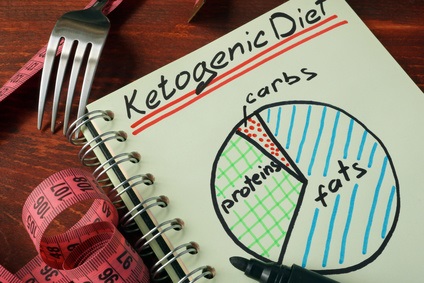Is Ketogenic diet for you?
 The ketogenic diet famously known as the keto diet is gaining popularity each day. It’s because of the new twist it brings on extreme weight loss. The diet has been known to use the body’s fat burning system to help you in losing significant weight in less than ten days. The ketogenic diet not only promotes quick weight loss but also helps to achieve overall unicorn health status and boost brain power. So, is that all about ketogenic diet? Is ketogenic diet right for you, or is it just another infatuation?
The ketogenic diet famously known as the keto diet is gaining popularity each day. It’s because of the new twist it brings on extreme weight loss. The diet has been known to use the body’s fat burning system to help you in losing significant weight in less than ten days. The ketogenic diet not only promotes quick weight loss but also helps to achieve overall unicorn health status and boost brain power. So, is that all about ketogenic diet? Is ketogenic diet right for you, or is it just another infatuation?
What is a ketogenic diet?
In a layman’s language, a ketogenic diet is similar to starvation. Through the starvation, the body goes into a metabolic state known as ketosis. Ketosis occurs when you eat a low or no-carb diet, which causes molecules known as ketones to build up your bloodstream. Typically, your body is a sugar-driven machine that breaks down carbohydrates into glucose. The glucose is then used as energy or transported and stored as glycogen in the liver. The liver then comes the sole provider of glucose (energy) to almost every organ in your body.
When you go keto, you make your body to switch to burning glucose for fuel rather than fat. Following the ketogenic diet for a while, your body enters into nutritional ketosis. It means your liver changes its function to converting fats to ketones for fuel instead of your body burning glucose directly. That is what happens to your body when you are in a ketogenic diet.
What benefits do you get from a ketogenic diet?
The primary reason why people adopt the ketogenic diet is weight loss. Doctors recommend the keto diet especially to people with over thirty pounds of weight to lose or have weight loss resistance, those with pre-diabetes, those with epilepsy, or those with high blood glucose levels. Below are some of the additional benefits of the ketogenic diet.
- Improved energy levels
- Quick weight loss and improvement in glucose, lipids and cholesterol levels
- Ketones produced by the diet are essential for brain health
- Increased satiety and decreased food cravings
- Prevents stroke
- Inflammation management
What to eat in a ketogenic diet?
Since the ketogenic diet is a low or no-carb diet, then you will build your meals around low carb veggies, moderate proteins, and fats and healthy oils.
Healthy fats: Ghee, unprocessed cheese, butter, olive oil, and avocado oil
Meat and fatty fish: You probably know what is meat. In this diet choose meat from poultry and fatty fish such as salmon, sardines, and tuna.
Eggs: Unprocessed eggs
Nuts and seeds: Walnuts, pumpkin seeds, almonds, cashews, and Brazil nuts are the best bets
Low carb veggies: Here, go for the leafy, crunchy, and non-starchy vegetables. They include cruciferous, peppers, tomatoes, cucumber, etc.
Potential risks associated with the ketogenic diet
The benefits of the diet are impressive; however, some few potential downsides cannot be ignored. First, the diet is hard to stick to. It’s because the diet causes your body to shift from what you’re used to. It is as a result of lowering the intake of carbs which makes you feel hungrier than usual.
People who are starting the diet tend to experience flu-like symptoms such as fatigue and headaches. The side effect is so common to people going keto that there is a name for it, which is the keto flu. During the start of the diet, you will probably lose a lot of water leading to dehydration. The condition worsens the symptoms of the keto flu.
Other potential risks of the ketogenic diet include several minerals and vitamin deficiencies, gastrointestinal distress, kidney stones, and decreased bone mineral density.
Conclusion
Is ketogenic diet good for everyone? The answer to this is no. Following its potential risks, it does not qualify to be safe for everyone. The following are situations that one should avoid the ketogenic diet/
- During pregnancy
- Suffering from diabetes or other blood sugar levels
- Having adrenal fatigue or a thyroid disorder
- Being underweight or nutrient deficient
- Suffering from kidney stones
- Having an enzyme defect
If you are facing any of these situations, you are highly recommended to avoid the diet. It’s because the people having these disorders have deficiencies in some of the body enzymes used in creating and transporting energy in the body.
Despite the potential risks of the ketogenic diet, it’s not a bad diet after all. If you wish to start the diet in a way that is safe, you can modify the diet to make it equally beneficial. One method of modifying the diet is following something known as a modified low carb diet. With this, you will be certain that you are safe from the potential risks and at the same time benefiting from the diet.


